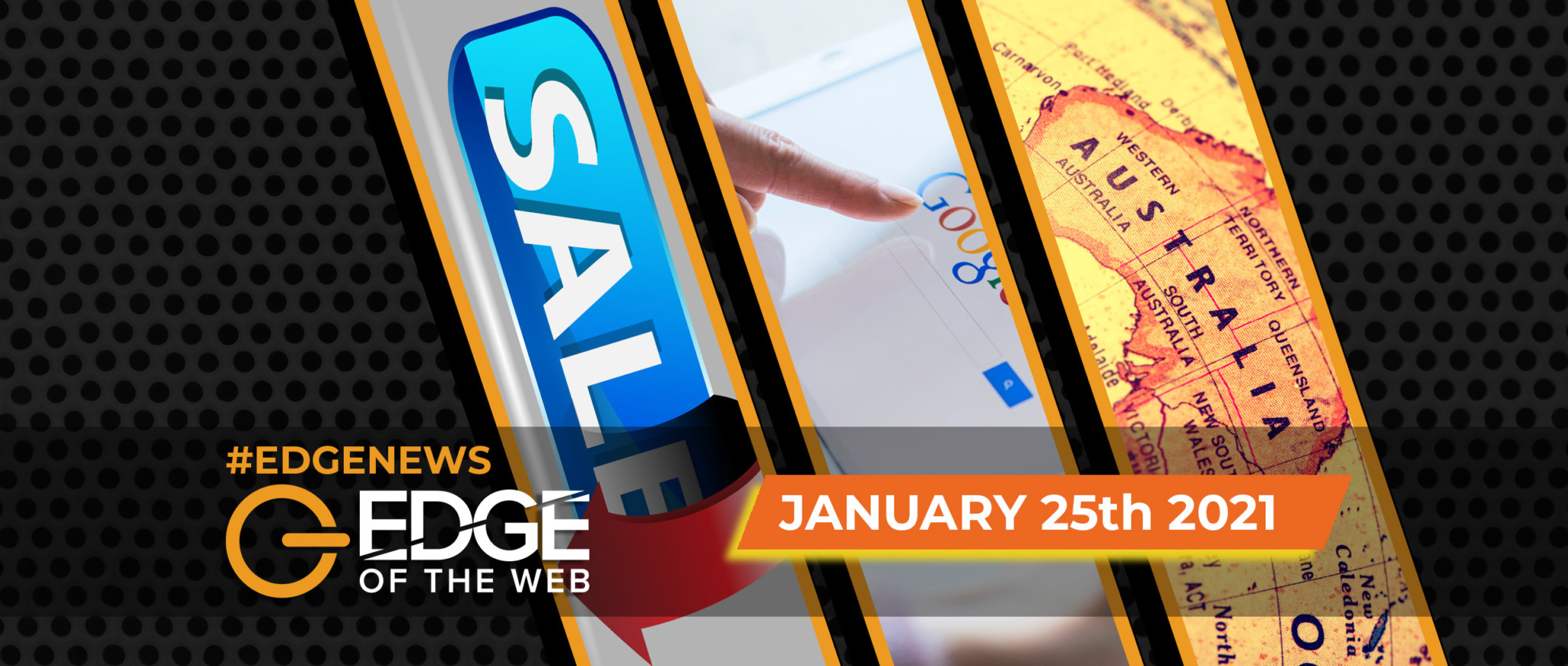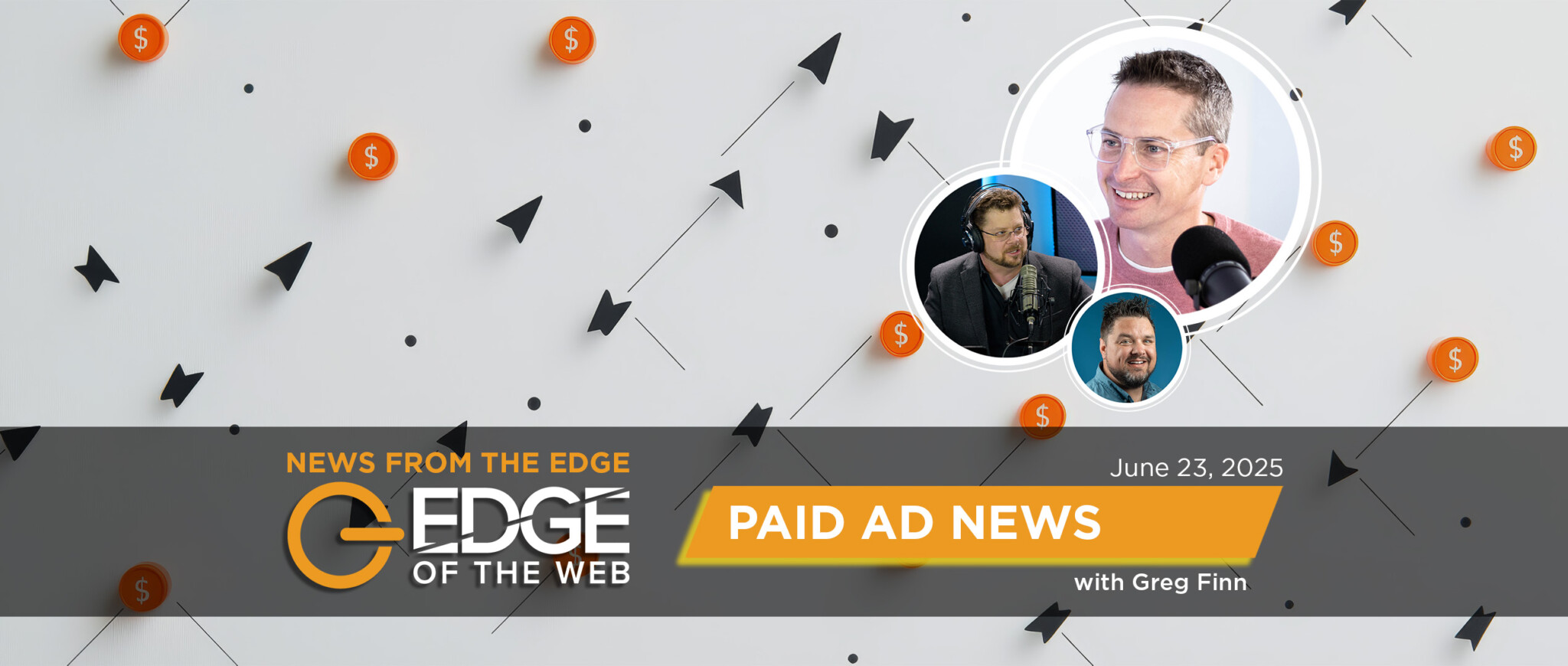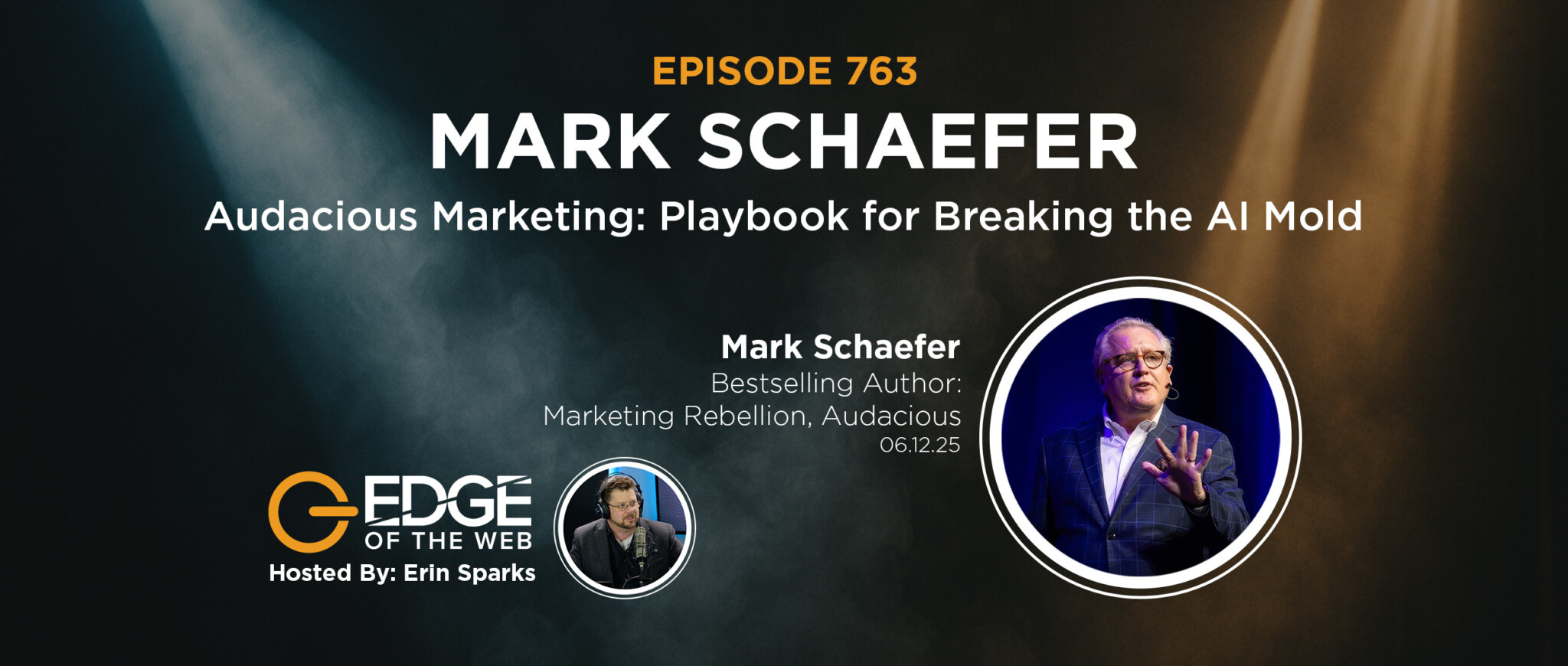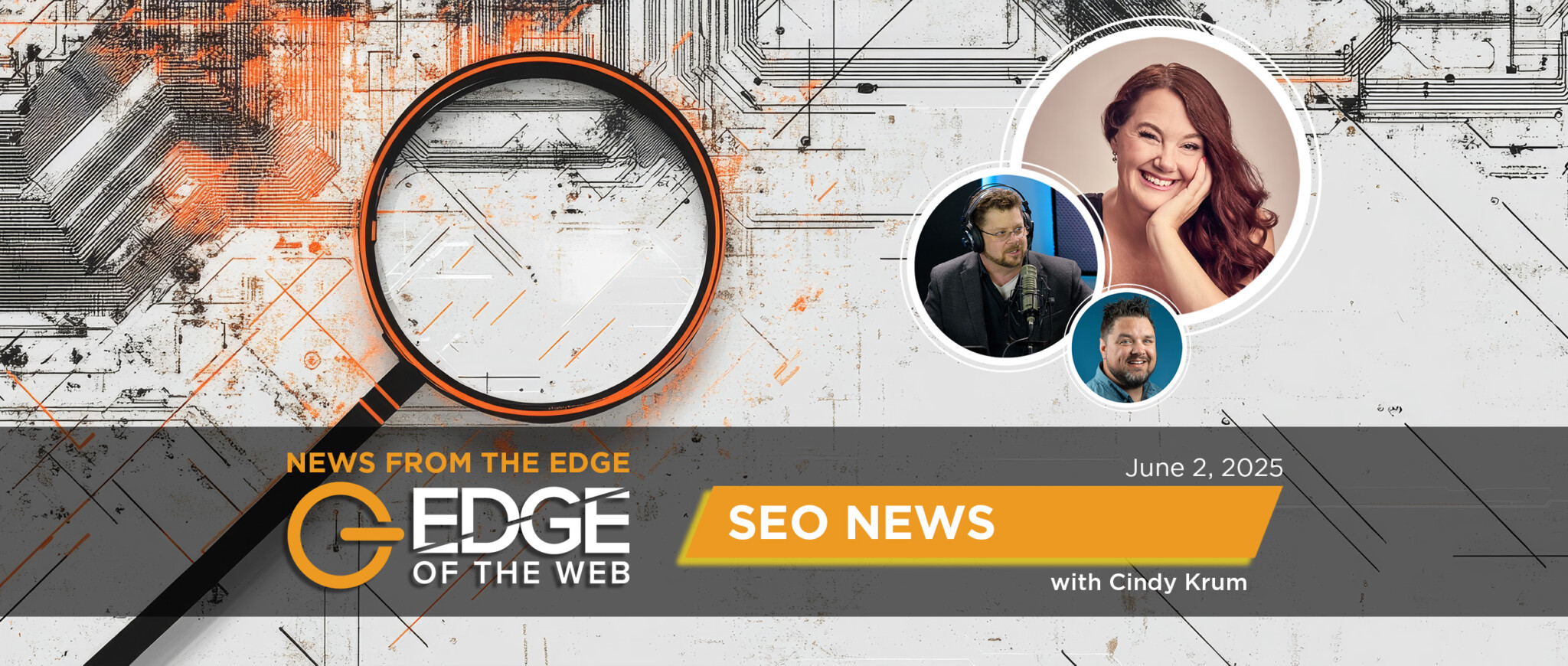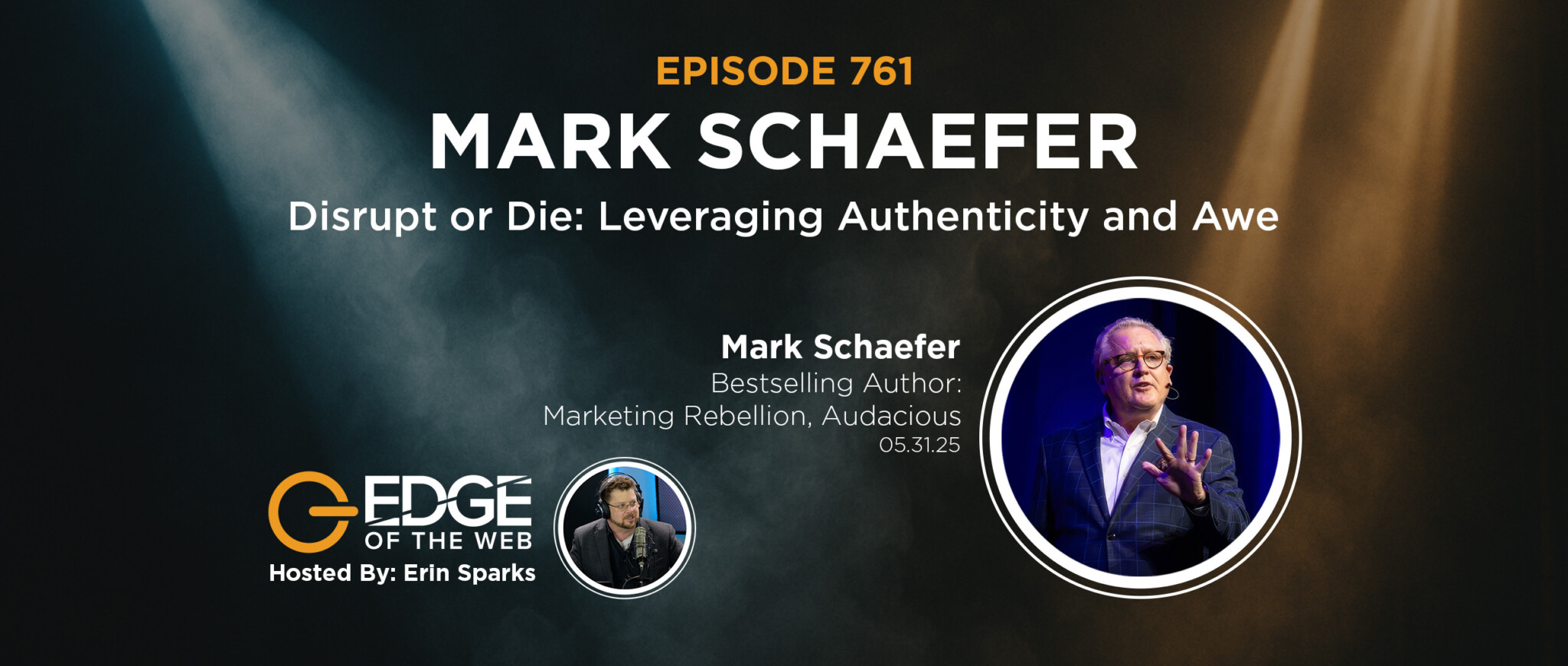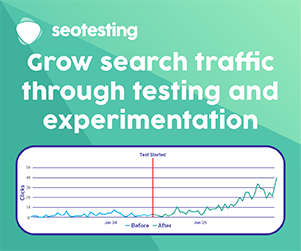January 25, 2021
It’s an all-Google set of digital marketing news headlines this week with price drops featured in rich results, contextual links in featured snippets making SEOs nervous, and turning up the heat Down Under with the threat of pulling search from Australia. Bernie Sanders even made an appearance in this edition, oddly enough. Host Erin Sparks and Studio Creative Director Jacob Mann along with Mordy Oberstein, Wix’s SEO Liaison, talk about these key stories to keep you up-to-date in this week’s news roundup, episode 388 of the award-winning EDGE of the Web podcast:
Google Introduces Price Drop Rich Result
From Roger Montti on Search Engine Journal: Google Introduces Price Drop Rich Result. Google updated the Product Structured Data documentation with a new Price Drop search appearance for product pages. Becoming eligible is easy.
- Erin Sparks: This is based on updating your schema with the right product structured data. This is just a new way of presenting the price drop information in rich search results. It will work on both mobile and desktop devices. This is an interesting development to see Google interpreting the schema data and modifying its SERPs for the benefit of users
- Mordy Oberstein: You have to have your product markup there so Google can see if a price drop has occurred based on what the price was. This is a pretty amazing development that speaks to Google trying compete with Amazon.
- Erin Sparks: It can also be used with the aggregate offer type to display a range of prices as well. Google’s doing a lot of interpretation here to understand the intent of those fields. And obviously it’s only going to work well if you’re very careful about that product data. But if you get it right it’s a great opportunity and represents another example of how Google is trying to get users the kind of information they want.
- Mordy Oberstein: You could do a new product listing where you initially price the product higher than you normally might, then do a price drop so it shows up in this rich result. In other words, people are going to abuse this.
- Erin Sparks: And will Google then have to do something about it if it seems like you’re constantly shifting your schema data around to take advantage of this feature.
Contextual links in featured snippets may present new opportunities and risks
Over on Search Engine Land is a story by George Nguyen about how Contextual links in featured snippets may present new opportunities and risks. In November, contextual links began appearing in Google’s featured snippets. Although it’s still in the testing phase, the potential for more links to appear in this high-visibility search result feature has SEOs concerned about what that may mean for their click-through rates, the safety of their brands as well as how they might optimize for it.
- Erin Sparks: Most people are aware of featured snippets and how they appear above the organic results, but they might not know much about these contextual links.
- Mordy Oberstein: This is Google putting in-links into featured snippets, and if you hover over one of these links, an additional featured snippet will pop up and you can either just read the additional featured snippet or click on it to go to those results. Most people will probably treat those for what they are, which is a kind of footnote to the featured snippet, so most will probably just glance at the extra pop-up featured snippet.
- Erin Sparks: What’s making SEOs nervous about this is that if one of their pages is the basis of a main featured snippet, the contextual links, if followed, are then taking users away from their content to whatever other content Google has decided is contextually related to topics in the main featured snippet. If Google anoints content with a featured snippet, it seems counterproductive to the content publisher to bring up all this other content that isn’t theirs. There’s already the debate of how featured snippets themselves can negatively impact click-through rates since the answer is there in the snippet and users don’t have to click through to the content publisher’s site, and now these contextual links seem to be another potential negative impact on click-through rates. What if the contextual links end up connecting users to content of your competitors?
- Mordy Oberstein: But what can you do about? Not publish content? De-index everything? And if the contextual links turn out to be rabbit holes users want to go down, so be it. Most will probably be satisfied with the additional pop-up snippet, and some might go further down the rabbit hole from there by clicking on it. But that feels like a lot of decisions a user has to make to end up pursuing any of those contextual links. After all, it’s all ancillary content, meaning it’s not why you’re there.
- Erin Sparks: So it’s really just a kind of topical fly-by to embellish the search results. But there’s still at least some question in many minds about how this could impact some businesses. And of course some SEOs are going to be trying to figure out if they can somehow optimize for contextual links on featured snippets, which feels like a real brain-twister.
Google might remove search in Australia if forced to pay to link to sites
From Barry Schwartz on Search Engine Land we see Google might remove search in Australia if forced to pay to link to sites. This comes after Google signs an agreement with French publishers to pay for some content.
- Erin Sparks: How in the world do you take away search from an entire country? Do they just block any IP address coming from Australia?
- Mordy Oberstein: I guess so. You’d have to have a VPN just to Google!
- Erin Sparks: A new market for VPNs!
- Mordy Oberstein: It’s a game of chicken and Google’s upping the ante by saying fine, we’ll just take search away—see how you like Bing.
- Erin Sparks: If you haven’t been following this, Australia has been developing a potential law or industry code to protect its news organizations, saying they ought to be compensated for the content they’re publishing being surfaced in Google search results. Not in the regular SERP index, but when it’s being promoted in featured snippets and news results and so on. Google is giving that content an extra lift without offering any compensation for it.
- Mordy Oberstein: And yet the same thing happens in France and Google has agreed to some kind of compensation scheme. Apparently the difference is the terms, and that the terms of the Australian code are just crazy compared to France. But it still seems like it would have been better for Google to resist the French deal as well.
- Erin Sparks: And won’t there just be a rush of news content publishers and other publishers who want to try to force Google to subsidize their content? It’s interesting because two years ago Google said they would not pay French news content publishers, and now they have agreed to it. What they’re agreeing to do is work out licensing agreements with individual IPG-certified publishers with APIG membership.
- Mordy Oberstein: And it’s clear that this is not going to really benefit small-town newspapers, right? They’re only going to negotiate with big, high-profile news publishers.
- Erin Sparks: This is really big, especially in light of all the recent anti-trust actions against big tech. How this plays out could really mark our entry into a whole new era of content publishing.
- Mordy Oberstein: All the industry experts I’ve asked about this think the situation is very strange. Everyone, including me, is shocked that Google agreed to pay any news publishers in France.
- Erin Sparks: It really takes the power of Google to a whole new level if they can literally pull search from an entire country. It’s their sandbox, after all, so you have to play by their rules. How far can they really take that?
- Mordy Oberstein: And then there will be situation where some publishers will inevitably claim they’re not ranking because they didn’t pay Google, right? It’s going to be a real Pandora’s box.
Connect with Mordy Oberstein, Wix’s SEO Liaison
Twitter: @MordyOberstein (https://twitter.com/MordyOberstein)
LinkedIn: https://www.linkedin.com/in/mordy-oberstein-12551715/
Connect with Erin Sparks, Host of EDGE of the Web and CEO of Site Strategics
Twitter: @ErinSparks (https://twitter.com/erinsparks)
LinkedIn: https://www.linkedin.com/in/erinsparks/



 –>
–>